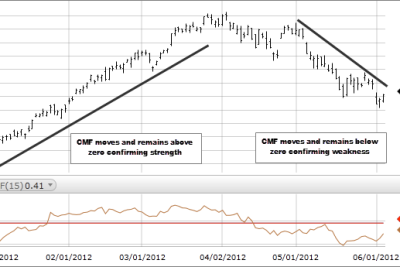
What are the pros and cons of birth control pills

In the modern world, birth control is an essential aspect of women's health, providing individuals with greater autonomy over their reproductive choices. Among the various methods available, birth control pills have gained prominence due to their effectiveness and convenience. However, it is crucial to understand the pros and cons of birth control pills to make an informed decision regarding their use.
With the recent approval of the first over-the-counter birth control pill, Opill, by the FDA, we are witnessing a significant shift in how women access contraceptive options. This development reflects not only a change in policy but also a cultural shift towards recognizing women's reproductive rights. As we explore the pros and cons of birth control pills, we will delve into historical context, current usage statistics, and the implications of using contraceptives in today's society.
Historical Context of Birth Control Pills
The journey of birth control pills began long before their approval in the mid-20th century. Various methods of contraception have existed since ancient times, ranging from herbal remedies to mechanical devices. The modern pill emerged from the groundbreaking work of figures like Margaret Sanger, who fought for women’s reproductive rights and access to birth control. In the 1960s, the introduction of the first oral contraceptive, Enovid, revolutionized how women approached family planning.
Since then, the birth control pill has evolved in its formulation and accessibility. With advancements in medical research, a wide variety of pills now cater to different health needs and preferences. This evolution has not only changed the conversation around contraception but also contributed to women's health and independence.
Overview of Current Usage Statistics
As of 2024, approximately 65% of American women of reproductive age are utilizing some form of birth control. Among these, female sterilization and the pill remain the most common choices. The landscape of contraceptive use is being transformed with recent innovations, such as the FDA's approval of over-the-counter options, which provides greater accessibility for women everywhere.
Sales for the newly approved Opill are set to begin at a price of $19.99 for a month’s supply, making it a potentially affordable option for many. The increasing number of women opting for birth control pills illustrates the need for comprehensive access to contraceptive methods, addressing both effectiveness and convenience.
Pros of Birth Control Pills
Convenience and Accessibility
One of the most significant advantages of birth control pills is their convenience. For women who are able to remember to take their pill daily, these contraceptives provide a reliable method to prevent pregnancy. With the recent approval of over-the-counter options, accessibility has greatly increased; women can purchase the pill without needing a prescription, removing barriers that previously existed.
This accessibility also empowers women to take charge of their reproductive health without depending on healthcare providers, which can be especially beneficial in areas with limited medical resources. Moreover, having an over-the-counter option like Opill broadens the availability of contraceptives, enabling women to choose what works best for their lifestyles.
Health Benefits Beyond Contraception
In addition to preventing pregnancy, birth control pills offer numerous health benefits that extend beyond contraception. Many users experience regulated menstrual cycles, reduced PMDD (premenstrual dysphoric disorder) symptoms, and relief from painful menstrual cramps. Furthermore, the pill can also lower the risk of certain cancers, such as ovarian and endometrial cancer, making it a multifaceted option for many women.
Reversible Nature of Birth Control Pills
Another noteworthy advantage of birth control pills is their reversible nature. Unlike permanent methods such as sterilization, women can discontinue the use of pills at any time, allowing them to conceive when they choose to do so. This flexibility gives women greater control over their reproductive lives, ensuring they can adapt their contraceptive choices based on changing circumstances.
Cons of Birth Control Pills
Potential Side Effects and Risks
While birth control pills offer many benefits, it is essential to acknowledge the potential side effects and risks associated with their use. Some women may experience symptoms such as nausea, headaches, weight gain, or mood swings. In rare cases, serious health risks, including blood clots and hypertension, can arise, especially in smokers and women over 35.
It's important for individuals considering the pill to consult healthcare providers, ensuring they are aware of their medical history and any potential contraindications before starting on this method. This awareness can help mitigate risks and lead to a safer experience overall.
Need for Medical Consultation
The necessity of a medical consultation before starting birth control pills can be seen as a disadvantage for some. In the past, the requirement for a prescription may have limited immediate access for women seeking contraception. However, despite the convenience of over-the-counter options, it remains vital for individuals to discuss their health with a medical professional to ensure they are choosing the method that is best suited to their needs.
Misconceptions and Myths
There are several misconceptions surrounding birth control pills that can affect women's decisions about using them. For instance, many believe that the pill is only for women seeking to avoid pregnancy; however, as mentioned earlier, the pill offers various non-contraceptive health benefits. Others may assume that all women can safely use the pill, disregarding the fact that individual health conditions may pose risks.
It is crucial to educate women regarding these misconceptions to empower informed decisions about their reproductive health and to dispel any myths surrounding birth control pills.
Conclusion
In conclusion, the pros and cons of birth control pills evoke important discussions about women's reproductive health. While these pills provide numerous advantages, including convenience, health benefits, and reversibility, there are potential side effects and the need for medical consultation to consider. Through comprehensive education about the realities surrounding birth control options, women can better navigate their choices and make informed decisions that reflect their individual needs.
Future of Birth Control Options
The future of contraceptive methods appears promising, particularly with advancements like the over-the-counter sale of birth control pills. As societal attitudes towards reproductive rights continue to evolve, a wider array of options may emerge, providing women with even greater autonomy. Understanding the pros and cons of condoms also remains essential, as they offer a different set of benefits and considerations compared to pills.
As we look ahead, ongoing research and advocacy efforts will play a crucial role in shaping the landscape of contraceptives, ensuring that women's health needs are prioritized and that solutions are both effective and accessible.
Did you find this article helpful? What are the pros and cons of birth control pills See more here Education.
Leave a Reply






Related posts